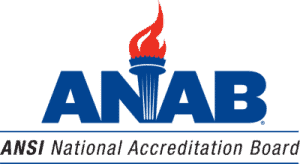What Is Changing in the Wood Pellet Fuel Producing Industry?

The Pellet Fuels Institute (PFI) recently announced to the wood pellet producing industry a revamped Residential/Commercial Densified Fuels Standard Program, which is a product certification scheme utilizing ISO/IEC 17065. Densified fuel is certified by product certification bodies accredited to ISO/IEC 17065 and accepted by PFI.
The scheme will now direct product certification bodies certifying densified fuel to utilize ISO/IEC 17020 accredited inspection bodies and ISO/IEC 17025 accredited testing laboratories for activities in the scheme. To remain active in the revamped scheme, the auditing agencies in the previous PFI program are required to be accredited to ISO/IEC 17065 and ISO/IEC 17020 and may need additional scopes for the revamped pellet fuels program. In addition, testing laboratories active in the previous PFI program now need accreditation to ISO/IEC 17025 to remain active in the revamped scheme.
What is Densified Fuel?
Densified fuel consists primarily of compressed wood pellets, logs, and briquettes. Densification of wood compresses the material into a smaller volume so that the material maintains the smaller volume throughout its transport and use and reduces the moisture content of the wood. With the smaller volume, the fuels are easier to transport, store, and use.
Densified wood is often used in commercial settings to supplement or substitute coal fired systems. Additionally, it is used in residential settings as an alternative to gas-powered heating systems. This is especially important when gas supply is reduced or unavailable entirely. Densified wood allows homes to be heated efficiently and safely. It can be a sustainable fuel source, and when it meets appropriate standards such as the PFI Standard Specifications for Residential/Commercial Densified Fuel is environmentally friendly.
Why Is Product Certification Important?
Initial and ongoing third-party inspection and testing is required to gather evidence of conformance to the PFI Standard Specifications for Residential/Commercial Densified Fuel and PFI QA/QC requirements. Through the use of a PFI marking via product certification, the PFI scheme provides assurance to distributors, retailers, and consumers that densified fuels meet the requirements in the PFI Standard Specification for Residential/Commercial Densified Fuel. Through this product certification, consumers then comply with US Environmental Protection Agency (EPA) regulations, which ultimately protects air quality.






